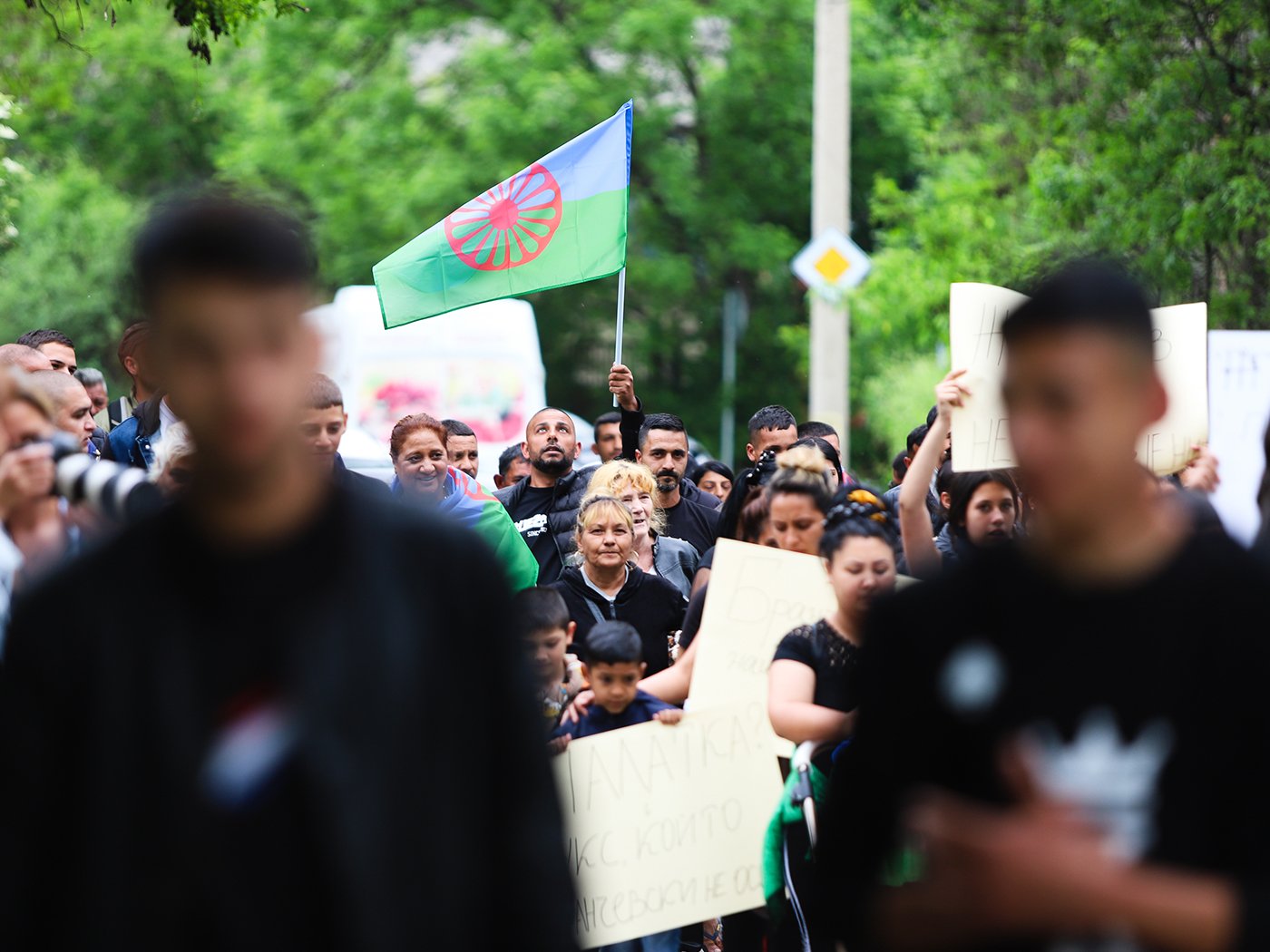16 May is not a day of remembrance. It is a constitutional threshold—a test that returns each year, not to be observed but to be met.
On this night in 1944, when the SS moved to liquidate the Roma camp at Auschwitz-Birkenau, our people did not obey. They had already buried their elders, seen the smoke, felt the silence after the strong were taken. They knew what the trucks meant. And they refused. They turned beds into barricades, utensils into declarations of dignity. They lit up the camp to signal to the world: we are not going quietly.
This was not just resistance—it was governance. Our people defended not only life, but law. Not the law of states, but a legal order carried in the body—through kris rulings, oaths, burial customs, genealogies and ritual timekeeping. What the world dismissed as folklore was a functioning jurisprudence: invisible, borderless, undocumented—and therefore threatening to systems that demand permission and visibility.
And that’s precisely why it was targeted.
What was destroyed in Auschwitz, Transnistria, Jasenovac, was not just life. It was Roma sovereignty. We paid with everything: homes and land seized and never returned; the extermination of midwives, judges, singers, craftsmen and oral historians—those who held the law in their voices and hands. And after the war, no court, no state, no reparations body acknowledged that what had been lost was not only life, but law.
Yet the law survived—because someone refused. Beneath the ash, in exile and silence, in code and ritual, in songs and calendars, our people carried forward what should not have endured: governance without a state, jurisdiction without recognition. They fought to ensure that what was brought into the camp would not die there—to prove that a people can govern themselves even when the world insists they never did.
This is what we inherit—not tragedy, not nostalgia, but constitutional memory.
And inheritance is not tribute. It is responsibility. It is the unfinished work of carrying forward a legal structure that was never meant to be seen. A system that has no courtroom, no government, no institutional name—but which bound our people nonetheless.
We speak of resistance with pride. But pride is not fidelity. We commemorate 16 May, yet live the rest of the year within systems that erase its meaning. We sit on panels about resilience, inside institutions that reject our law. We sing Gelem, Gelem on international stages while the names of our children are erased from civic records. We have traded jurisdiction for visibility, consultation for authorship, performance for power.
16 May does not reward performance. It judges fidelity.
Every regime—fascist, communist, liberal—has made the same offer: recognition without accountability. They publish the poem, not the ruling. They invite the performance, not the oath. They display the wagon, not the kris. The world has no difficulty remembering Roma—so long as it doesn’t have to answer to us. It honours our suffering but rejects our sovereignty. It teaches our genocide but never restores the political order we carried into the fire.
Too often, we have accepted this containment—mistaking it for continuity. We have allowed “Roma memory” to become a soft category: artistic, nostalgic, even beautiful. But 16 May cannot be softened. It cannot be folklorised. It is not a memorial. It is the return of a legal mandate—the reappearance of a government that outlived the regimes that tried to destroy it.
What the world calls “Roma culture” is often sovereignty misunderstood. Our rituals are not traditions. They are law. Our songs are not expressions. They are timekeepers of jurisdiction. Our commemorations are not mourning. They are constitutional acts—calendarised returns of a legal system that survived where others collapsed.
Until we live as if that is true, we will continue to misunderstand 16 May—as cultural inheritance rather than legal summons. But we are not a cultural community to be appreciated. We are a constitutional people whose law has outlasted empire, fascism and liberal democracy.
Because in the Roma tradition, memory is not passive. It is not reflective. It is not descriptive. It is sovereign. It binds. It instructs. It governs.
And that is what we are called to do. Not to commemorate. But to govern.
The systems around us—state, donor, court, parliament—do not fear our remembrance. They fear our refusal. They fear what happens when we stop asking to be included and begin acting as if we never needed permission. When we bring our law into the spaces that erased it. When we govern as if the nation already exists.
Because the cost of inheritance is not inclusion. It is structure. Discipline. Discomfort. It is the willingness to lose contracts, safety and status—if keeping them means betraying the mandate we claim to honour. If we will not pay that price, then no amount of remembrance can make us worthy of what was handed down.
16 May is not the end of something. It is the beginning that still governs.
Each year, it reappears—not to be mourned, but to be answered. And the answer it demands is not a speech. It is structure. Not ceremony. Responsibility.
It asks:
Have you governed in the name of what we defended?
Have you carried this law into the institutions that erased it?
Have you lived as if this date still binds you?
Because this day does not pass.
It waits.
And either we answer it—or we fail.
In the name of those who refused to disappear.
And in the name of those who never will again.

Mensur Haliti
Vice President for Democracy and Network Development
The latest

Serbia Must Amend Missing Persons Alert System to Protect Vulnerable Adults

Constitutional Review of the Šutar Law Confirms Serious Rule-of-Law Concerns

Europe’s Growth Depends on Roma Talent
Browse by category
Campaigns
Events
Facts
Press
Voices
For media inquiries:
[email protected]Sign up here so you don’t miss out on campaign updates, upcoming events and other news from the Roma Foundation for Europe and our network.
Sign up for our newsletter